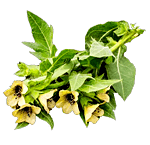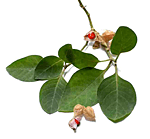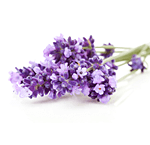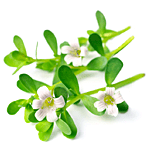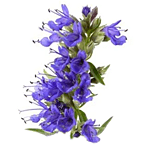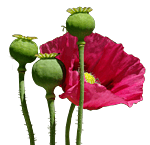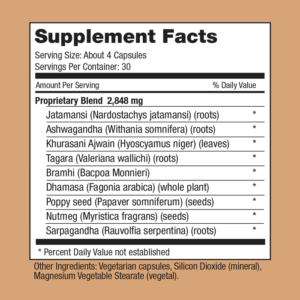








location_on India and South East Asia
Part used: Leaves









reduces anxiety, and
aids in restful sleep.
location_on Himalayan, including Nepal
Part used: Roots



sleep quality.
location_on India and parts of Africa
Part used: Roots
location_on Mediterranean and Western Asia
Part used: Leaves
sound sleep.
location_on India and Nepal
Part used: Roots




location_on India
Part used: Whole plant
restful sleep.
location_on Europe, Asia and North America
Part used: Seeds
location_on Native from Moluccas, Indonesia
Part used: Seeds
location_on India and Southeast Asia
Part used: Roots




The main difference between Western pharmaceutical drugs and Ayurvedic herbal supplements is how the health problem is addressed. Western pharmaceutical drugs generally address the symptoms of the problem, not what is causing it.
An example is having trouble sleeping. Many pharmaceutical prescription drugs for sleeping problems basically try to “knock out” the person taking them. These products create a “hangover” effect on a person’s mental and physical functioning the following day. Also people taking sleeping pills sometimes have a temporary worsening of the sleeping problem when they stop taking the pills. These pharmaceutical products are also usually not recommended to be taken on a long-term basis. Advertisements describing the benefits of these drugs are always followed by a long list of ailments, side effects, and complications that the drugs may cause, many of which are much worse than the insomnia itself.
Ayurvedic herbs are different from pharmaceutical products because they attempt to address the cause of the problem, rather than just the symptoms. Also, true Ayurvedic formulations are completely natural, as they are only formulated from the roots, leaves, and seeds of plants.
Frequently Asked Questions
Nidra for Sleep is a 100% natural vegan-friendly Ayurvedic sleep supplement designed to support peaceful healthy sleep. Our product also tries to balance the body, mind and spirit for holistic well-being.
Nidra for Sleep unique blend of Ayurvedic herbal formulation work synergistically to promote relaxation, try to reduce stress to help achieve a restful sleep.
Each herb serves a specific purpose and often multiple purposes.
The “Recommended Usage” is 4 capsules to be taken with half a cup of milk or water. However, many people will start with 3 to 4 capsules and some people may start with only 2 capsules. It really depends on what a person is comfortable with. As Nidra for Sleep is made strictly from natural herbs, not everyone experiences the same effect.
Also, always consult with your health-care provider before taking Nidra for Sleep or any other supplement for the first time.
Unlike many pharmaceutical over the counter or prescription sleeping pills that came with pages of side effects and warnings, Nidra for Sleep tries to support natural healthy sleep with our herbal formulations which offer a more holistic approach to sleep and well being.
Nidra for Sleep is generally considered safe as it is formulated with all-natural, vegan-friendly ingredients. However, if you are pregnant, nursing o taking medication, consult with your health-care provider before use.
Nidra for Sleep contains a potent blend of Ayurvedic herbs principal sourced from India. These herbs are renowned for their stress-relieving, mood-enhancing and sleep-promoting properties as well as additional benefits for a healthy life.
Nidra for Sleep herbs must be fresh and of high quality and have to sourced from different parts of the world. That’s expensive!
The first time you buy Nidra for Sleep, take off the cap and take a deep smell. What you smell is fresh herb aroma. Try the “smell test” with other sleeping product.
There is no product of any kind that will work for everyone all the time. Nidra for Sleep is a special product for people looking for an all natural herbal formulation that may help them get a better nights sleep. If Nidra does not work for you, you may can return the product for a full refund.
Yes, Nidra for Sleep is both, Vegan and Cruelty-free. We are committed to ethical sourcing and sustainable practices, ensuring that our product is kind to both you and the planet.
Exploring the industry of sleep aids, we can compare the widely used melatonin-based supplements with the holistic and herbal approaches of Ayurveda, taking into consideration their respective origins:
| Chemical Synthesis of Melatonin | 100% Natural Herbs of Nidra for Sleep | ||||||||||||||||||
 | 100% natural formulation from herbs (you can actually feel it smelling the product) | ||||||||||||||||||
Chemical elements used to synthesize Melatonin:
|
|
Sources:
Chemical Synthesis of Melatonin: https://www.ch.ic.ac.uk/local/projects/s_thupayang/synth.html
Ayurveda: https://en.wikipedia.org/wiki/Ayurveda
We are proud to partner with Amazon Fulfilment for all our shipping needs.
This ensures that you will receive your Nidra for Sleep order quickly and reliably.
We offer a 30-day money-back guarantee. If you are not satisfied with the Nidra for Sleep you can return the product within 30 days for a full refund.
Formulated by an Aurvedic physician and manufacturated in the U.S. in a FDA approved laboratory.
These statements have not been evaluated by the Food and Drug Administration.
This product is not intendeid to diagnose, treat, cure, or prevent any disease.

